In order to respond to critical work needs, we have to be able to move talent quickly. To do this, our processes and technologies have to be equipped for agility, accuracy and speed. Government’s often rely on rigid HR processes that require multiple re-verifications of employees’ work-related data (such as education, skills and security), particularly when the same people apply for similar jobs but are assessed by different managers.
This reliance on rigidity and duplication of effort makes transforming into a modern digital skills approach a lot easier said than done.
Governments often adopt technologies that are fully developed, rather than being a part of shaping that technology in its initial design and optimizing it for government context. This experiment was a chance to get in early on emerging technology, be a part of an international ecosystem and test theories before larger-scale commitment.
Canada’s Free Agents know the problem of skills validation and systems duplication all too well. In fact, they experience this problem tenfold. The Free Agent program is a talent mobility program that’s designed to move talent for project-based work within the federal government. However, the frequency with which Free Agents move creates an incredible administrative burden on everyone. And, perhaps most importantly, according to Abe Greenspoon, the former Talent Manager for the Free Agents “We haven’t figured out the right systems to support our patented mix of autonomy, mobility, and talent management."
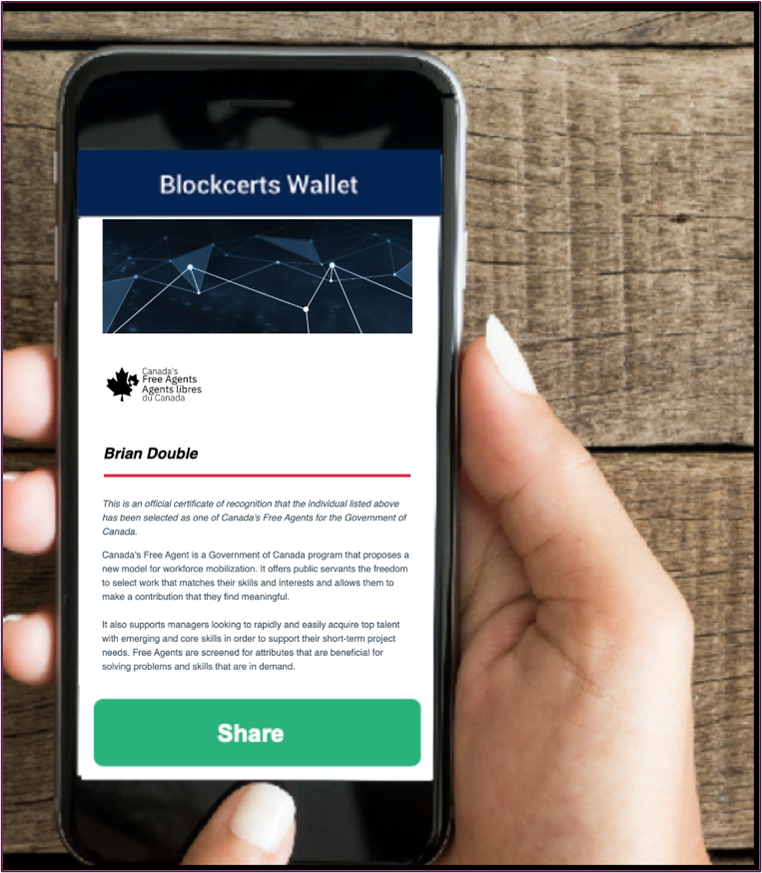
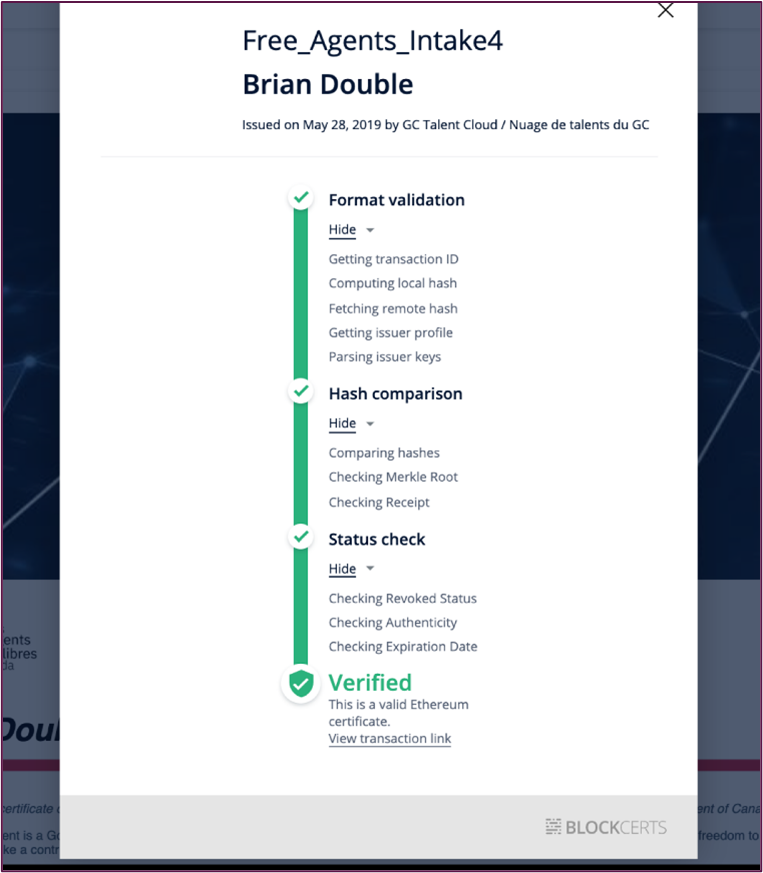
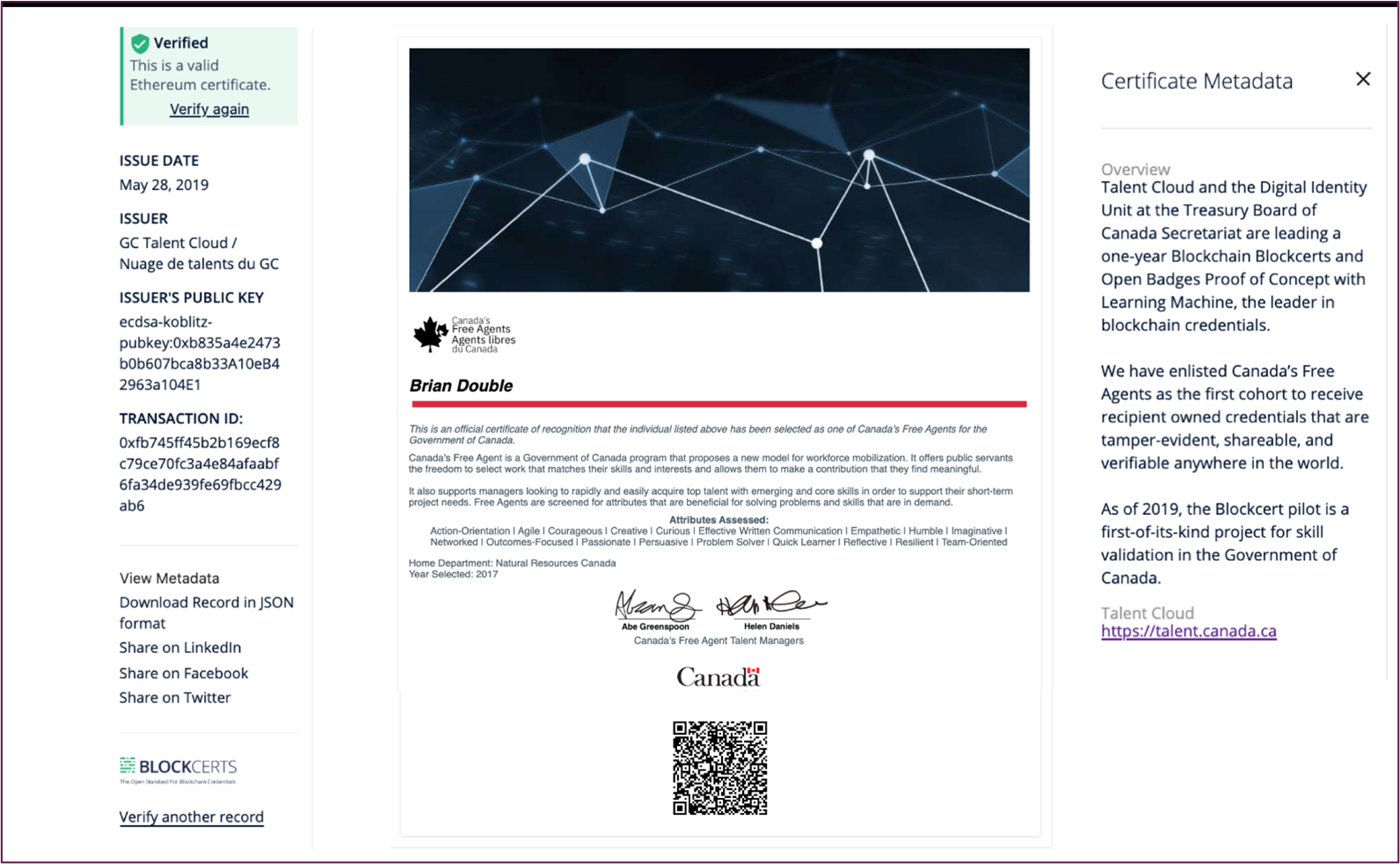
As the Free Agent program is mobile by design, and all qualifying individuals are assessed according to common attributes that are aligned to an internationally recognized framework, Free Agents were an ideal control group for a pilot test of the use of Blockchain for skills validation in a government context.
Enter Blockcerts - a global, open standard for creating, issuing, viewing, and verifying any type of credential using any blockchain as a secure anchor of trust. Blockcerts was one of the very few ready-to-use products ready to test verifiable credentials and digital wallets. In 2018, as part of a one-year proof of concept, Talent Cloud and the Digital Identity Unit at the Treasury Board Secretariat (TBS) of Canada in partnership with Learning Machine (a global leader in Blockchain technology), issued Blockcerts: blockchain-anchored credentials to Canada’s Free Agents.
Free Agents equipped with Blockcerts now have a way to independently and securely prove their identity and their skills in a way that is easy and that respects their individual rights to privacy and data ownership. The Government of Canada became one of the first governments in the world to use Blockcerts to vet an employee’s skills.
Here's a real example of a Blockcert issued to a Free agent: shared via Twitter (with permission, courtesy of Brian Double.)
By design, the Free Agents were not dependent on proving their “Free Agent status” or skills to get their next assignment and Managers didn’t need to verify the Free Agents Blockcert in order to offer them one. Although issuing a Blockcert for Security Clearances would have provided transactional value for both Free Agents and Managers, the use of Blockcerts wasn’t transactionally essential, which reduced the dependency on adopting their use.
Rather than testing full dependency, we chose instead to focus on a simple use case for the demonstration of verifiable skills, which had not been done before. While blockchain technologies are often used for things like land registry and supply chain management, the use of Blockcerts for certifying “soft skills” hadn’t been done before. In doing so, we were able to illustrate the power of verifying credentials for high-value uses such as educational records, security, language levels and others.
The use of Blockcerts and other blockchain type technologies is more than just a tech problem, it’s also a cultural adoption problem. Both aspects are significant and represent a steep learning curve for the Government of Canada, particularly in the HR space.
As we’ve all learned by now, it’s not just about testing new and emerging technologies. In many respects, that’s the easy part. The difficult part is socializing new concepts. Cultural adoption and change management remain persistent challenges in most organizations, particularly public service organizations.
People loved the concept. Security and others immediately saw the potential for other uses. But even amongst the Free Agents, who are known innovators and early adopters of new technologies, adoption rates were lower than we’d hoped.
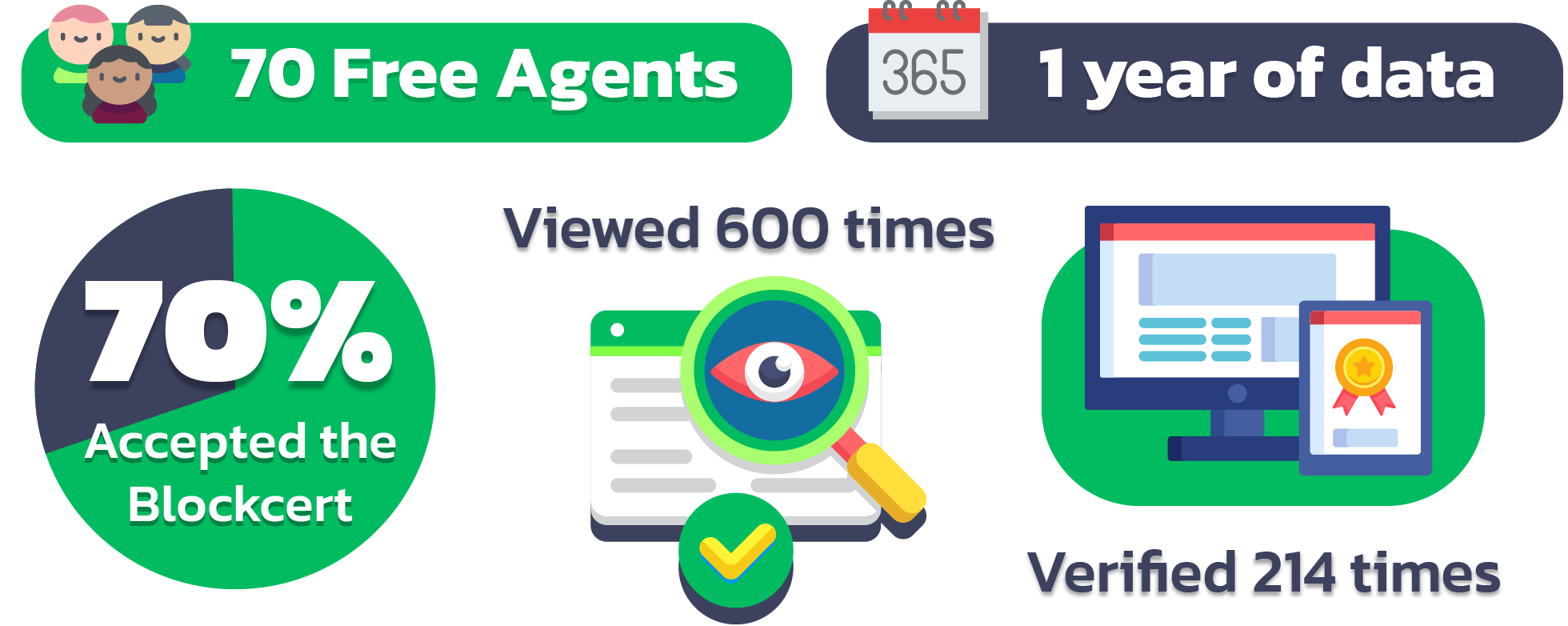
In June 2019, McMaster University became the first Canadian institution to offer digital degrees via Blockcerts. Those Blockcerts can then be used as proof of education when applying on GC Talent Cloud.
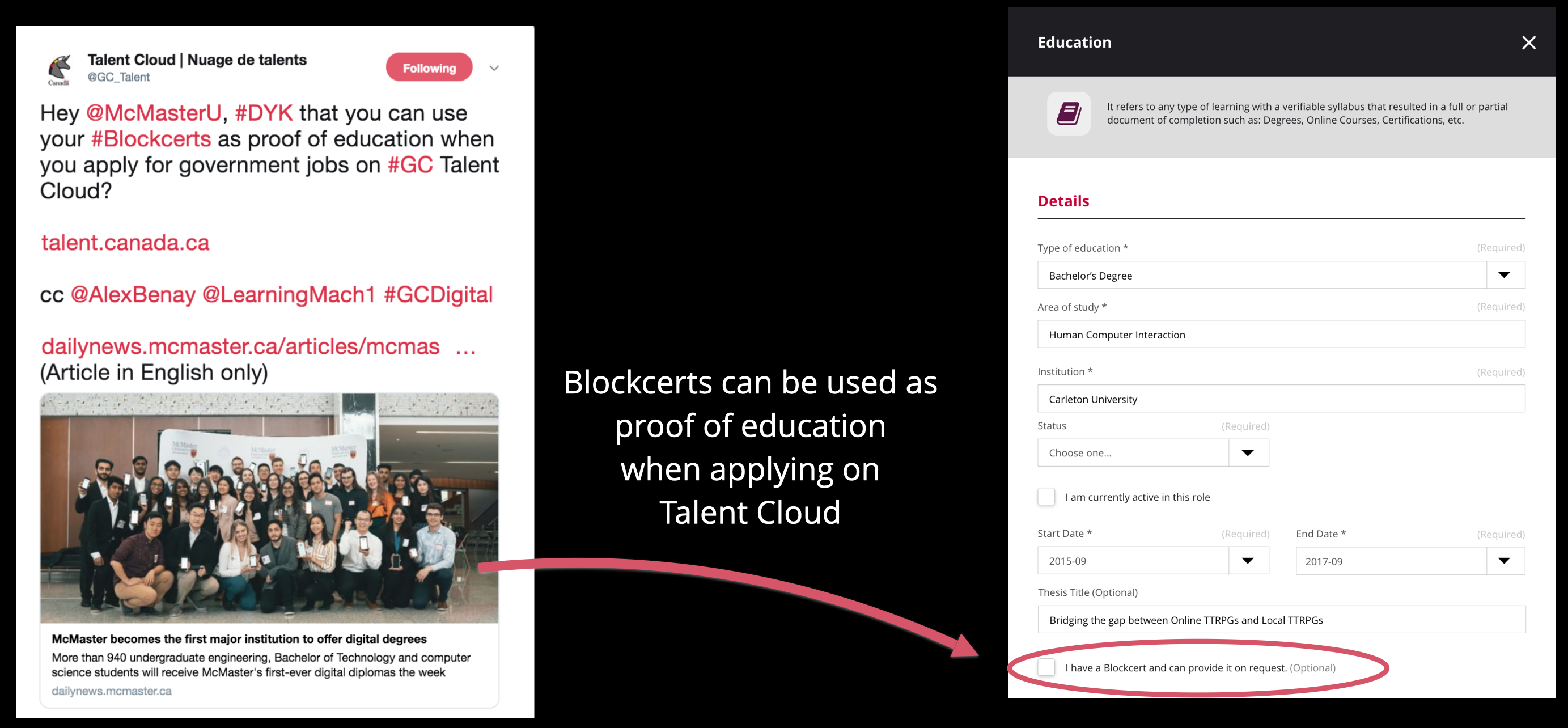
Blockcerts are a piece of the puzzle, and the ecosystem is evolving rapidly. Even three years after the pilot test launch, the international community has seen huge strides forward. But these strides point in the direction that blockchain technologies will remain useful in a specific range of circumstances, and the GC’s need for a skills validation solution is much broader.
"When people apply for a new job, they need to be able to showcase their skills in a way that can be validated, trusted and useful to hiring managers."
So we can conclude, that while university-issued blockchain degrees and other high-level professional validations of skills have a place in the future of the GC hiring ecosystem, there will need to be other solutions for smaller level, faster-changing skills validations (such as passing tests in an assessment process) to round out all the GC’s needs when it comes to validating skills.
(For our thoughts on a solution for this, check out the next write-up on Portable, Validated Credentials.)
This is our digital world. It’s our new reality whether we like it or not, and things are moving fast. And as technologies around us evolve, we have to evolve as well. It’s not just about digitizing analogue processes but it’s about a fundamental rethink of processes fit for digital. We are navigating new terrain with many obstacles yet to overcome. But we’re now one step closer towards a dynamic talent ecosystem fueled by portable credentials for skills.
And it’s not just about skills. Credentials such as security clearances, certifications for regulators, language levels are just some of the potential uses for verifiable records.
Portable credentials for skills is a radically different way of thinking about collecting, discovering and using skills-based data. It touches on concepts like trust, data ownership, digital wallets, and interoperability between systems. The Blockcerts project gave us the space to talk about these concepts and show what’s possible now, irrespective of the underlying technology.